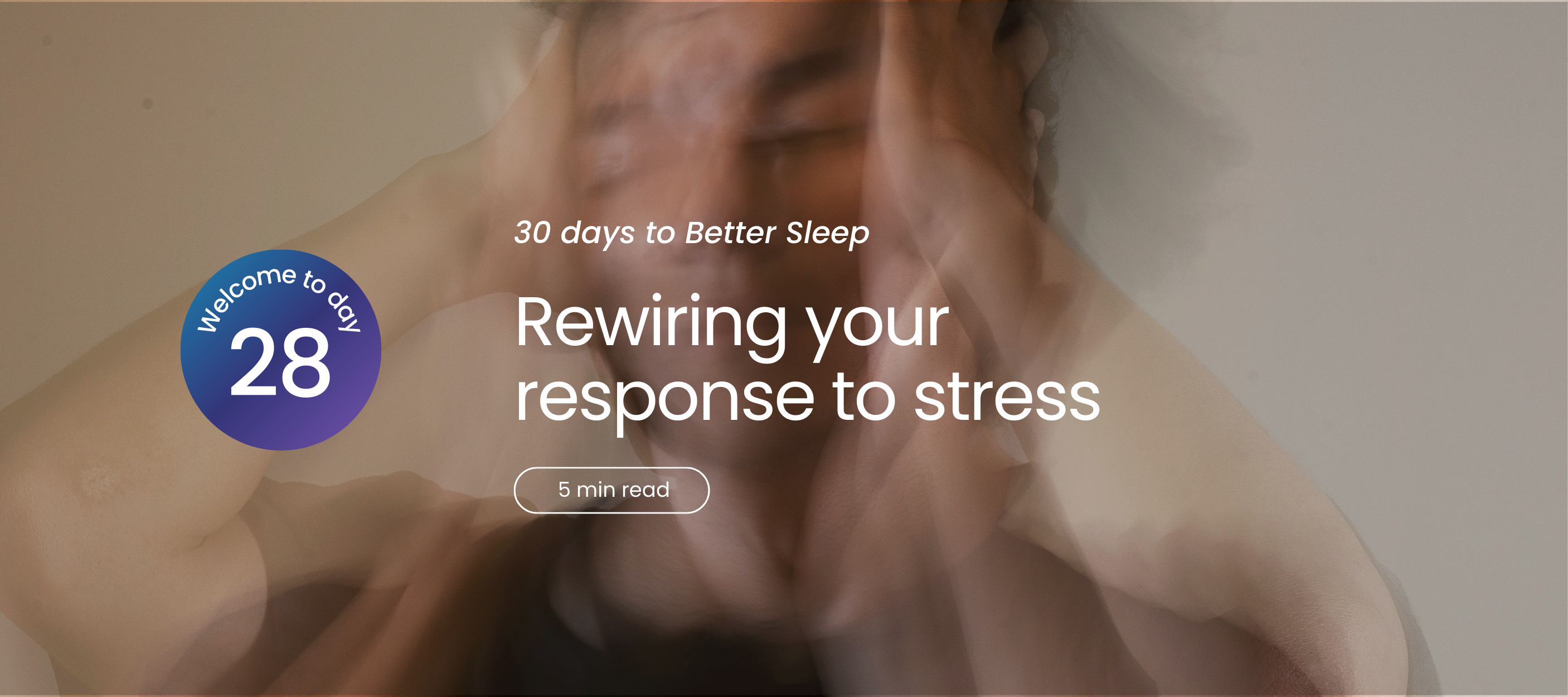
Chronic stress disrupts sleep and health—manage it to break the cycle.
Reframe negative thoughts to reduce anxiety and improve resilience.
Practice relaxation, healthy eating, and regular exercise to combat stress.
Stress is an inevitable part of life—a natural response to the demands and pressures we face every day. In small doses, stress can even be helpful, motivating us to take action or rise to challenges.
However, when stress becomes chronic or goes unmanaged, it starts to take a serious toll on both body and mind. Persistent stress doesn’t just affect our mood or productivity—it can disrupt our circadian rhythm, impair the quality of our sleep, and contribute to a range of physical and emotional health issues, from fatigue and irritability to weakened immunity and increased risk of chronic disease. Understanding the distinction between normal, short-term stress and the kind of prolonged, overwhelming stress that wears us down is the first step toward better health. By cultivating self-awareness, adopting realistic and compassionate thinking patterns, and practicing healthy coping strategies, we can break the cycle of chronic stress. Over time, these habits help us build greater resilience, so we can navigate life’s ups and downs with more balance, calm, and confidence.
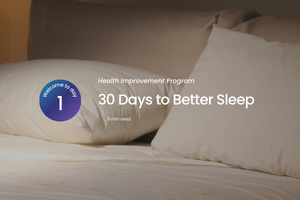
Chronic stress disrupts sleep and health—manage it to break the cycle.
Reframe negative thoughts to reduce anxiety and improve resilience.
Practice relaxation, healthy eating, and regular exercise to combat stress.
Stress is an inevitable part of life, but it becomes problematic when it is unmanaged or chronic. Chronic stress doesn’t just affect our mood or productivity—it can disrupt the circadian rhythm, hinder sleep quality, and contribute to both physical and emotional health problems. Understanding the difference between periodic, manageable stress and chronic, overwhelming stress is crucial. With awareness, realistic thinking, and healthy coping habits, we can break the cycle of stress and build greater resilience over time.

Stress often builds upon itself, especially when it’s not effectively managed. This creates a pattern that exacerbates the problem:

Over time, these patterns can cause serious issues, including:

Stress often builds upon itself, especially when it’s not effectively managed. This creates a pattern that exacerbates the problem:

Over time, these patterns can cause serious issues, including:

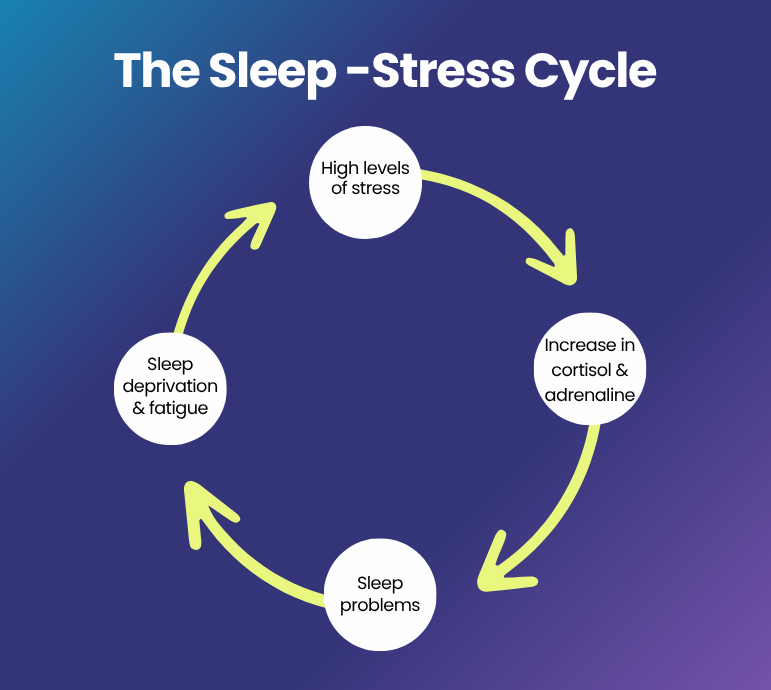
Lumie. (n.d.). How Does Burnout Affect Sleep? Lumie. Retrieved December 18, 2024, from https://www.lumie.com/blog/how-does-burnout-affect-sleep.
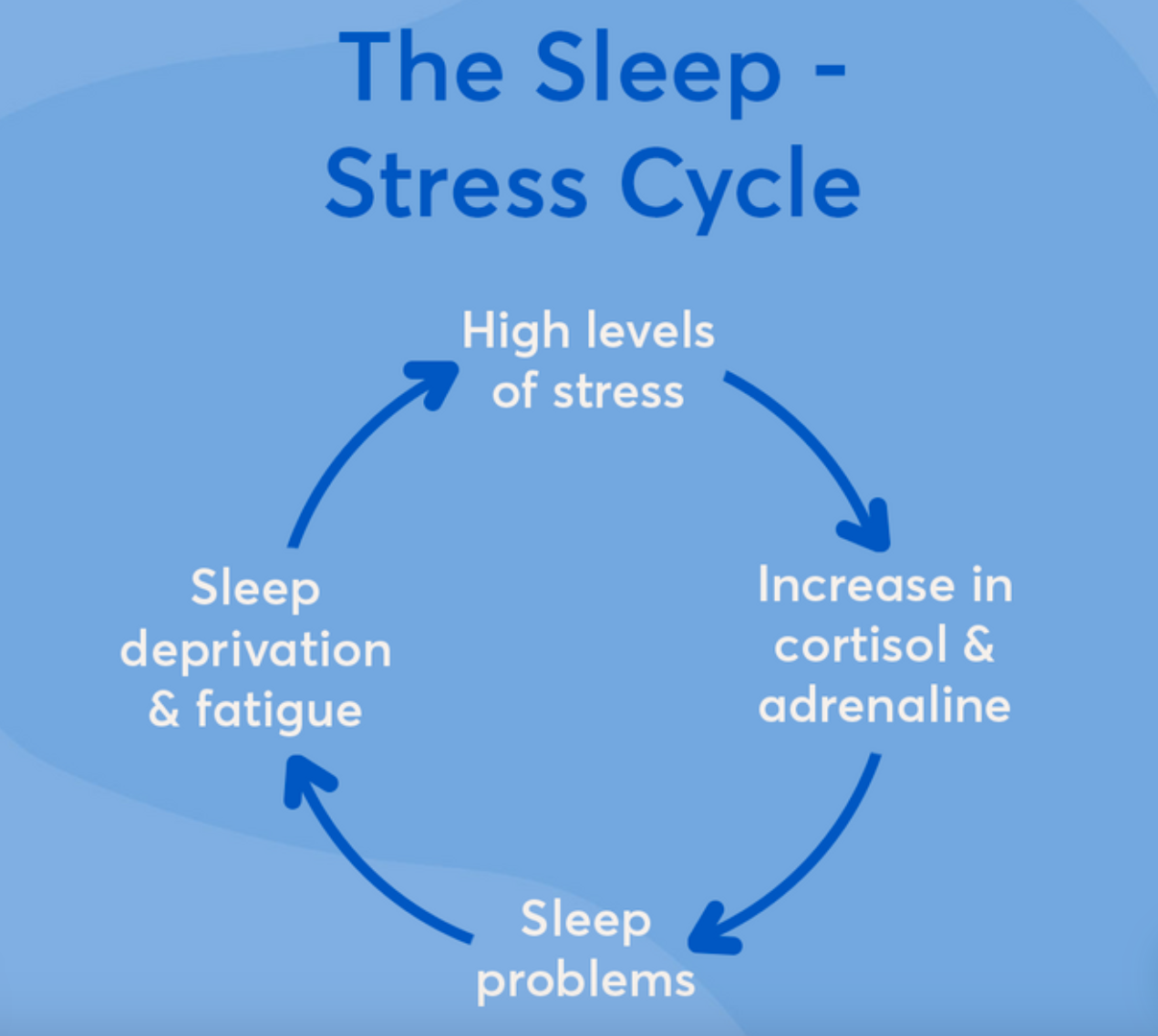
Lumie. (n.d.). How Does Burnout Affect Sleep? Lumie. Retrieved December 18, 2024, from https://www.lumie.com/blog/how-does-burnout-affect-sleep.
The good news is that stress responses are not fixed. We can retrain our brains to respond more effectively to stress, reducing its impact on our lives. One of the most powerful tools for doing this is to reframe negative or alarming thoughts, which can spiral into further anxiety and stress.
1. Replacing Alarming Thoughts:When negative thoughts arise, particularly those that are exaggerated or catastrophic, pause and assess their accuracy. Reframe them with more realistic, constructive alternatives.
Example 1:
Negative Thought: “I never get good sleep.”
Reframed Thought: “I’ve had good sleep before. If I continue with my sleep habits, I’ll improve again.”
Example 2:
Negative Thought: “I can’t fall asleep tonight.”
Reframed Thought: “I’ve experienced sleepless nights before, and I managed to get through them. I’ll get through tonight as well.”
Reframing thoughts in this way can shift the mindset from all-or-nothing thinking to one that is more balanced and realistic.
Reframing “Need” into “Preference”
Sometimes, shifting the language around sleep can also help reduce the pressure. Instead of thinking, “I need to sleep well tonight,” try thinking, “I hope I sleep well tonight, but if I don’t, I will still manage.”
2. Understanding Stress and Lifestyle:Stress doesn’t exist in isolation—it often influences other aspects of our lifestyle. For example, stress can lead to overeating, unhealthy food choices, or neglecting exercise, which only adds to the cycle of stress and poor sleep. Dr. Kia notes that managing lifestyle factors like diet and physical activity is crucial for strengthening our response to stress and improving sleep quality. A balanced diet, regular physical activity, and mindful habits can make a big difference in how the body copes with stress.
Relaxation Techniques: Use deep breathing, mindfulness, or meditation to calm your nervous system and prepare your body for rest.
Healthy Lifestyle Choices: Incorporate a balanced diet and regular exercise into your routine to improve overall resilience to stress.
Awareness of Thoughts: When negative or stressful thoughts arise, challenge their accuracy and replace them with more realistic, calming alternatives.
By consistently practicing these strategies, you can begin to take control of your stress, build resilience, and improve your sleep.


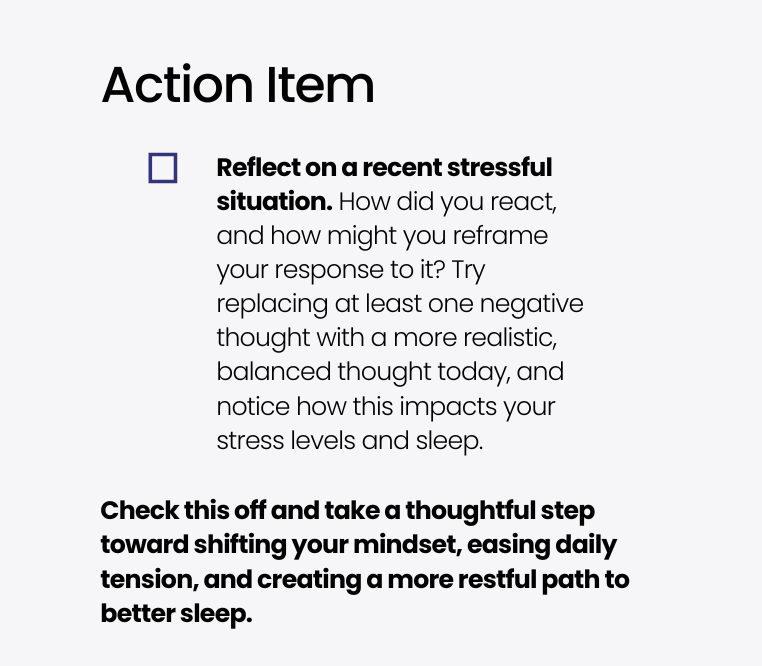
THE DOCTORS BRAND™
America’s leading clinically proven nutraceutical brand for better sleep, less anxiety and less pain
*These statements have not been evaluated by the U.S. Food and Drug Administration. Our product is not intended to cure or treat any disease.
MDbiowellness
Contact us
(805) 977-5709
M-F 9am-5pm PT
hello@MDbiowellness.com
© 2023 MDbiowellness